Biblical Epics in Late Antiquity and Anglo-Saxon England
Divina in Laude Voluntas
PATRICK MCBRINE
UNIVERSITY OF TORONTO PRESS
Toronto Buffalo London
University of Toronto Press 2017
Toronto Buffalo London
www.utppublishing.com
Printed in the U.S.A.
ISBN 978-0-8020-9853-5
 Printed on acid-free, 100% post-consumer recycled paper with vegetable-based inks.
Printed on acid-free, 100% post-consumer recycled paper with vegetable-based inks.
Toronto Anglo-Saxon Studies
Library and Archives Canada Cataloguing in Publication
McBrine, Patrick, 1974, author
Biblical epics in late antiquity and Anglo-Saxon England : divina in laude voluntas / Patrick McBrine.
(Toronto Anglo-Saxon series)
Includes bibliographical references and index.
ISBN 978-0-8020-9853-5 (cloth)
1. Epic poetry, Latin History and criticism. 2. Christian poetry, Latin History and criticism. 3. Christianity and literature England History To 1500. 4. Bible Criticism, interpretation, etc. History Middle Ages, 6001500. 5. Bible In literature. I. Title. II. Series: Toronto Anglo-Saxon series
PA6053.M33 2017 873.009 C2017-900056-X
This book has been published with the help of a grant from the Federation for the Humanities and Social Sciences, through the Awards to Scholarly Publications Program, using funds provided by the Social Sciences and Humanities Research Council of Canada.
University of Toronto Press acknowledges the financial assistance to its publishing program of the Canada Council for the Arts and the Ontario Arts Council, an agency of the Government of Ontario.

For my wife, Caroline,
and for Kieran, Ellie, and William
Preface
The purpose of this book is to provide an accessible introduction to the Latin biblical epics of late Antiquity (c. 300600) that were known in Anglo-Saxon England (c. 6001100). The first five chapters introduce the poetry of Juvencus, Cyprianus, Sedulius, Avitus, and Arator, whose work was read and studied throughout the Anglo-Saxon period. These chapters form the core of the book and focus on the Latin approach to biblical versification and the evolution of the genre over the course of late Antiquity. turns to the reception of this literature in Anglo-Saxon England, in the writings of Aldhelm, Bede, and Alcuin, whose poetry bears witness to the pervasive influence of Latin biblical epic on Anglo-Latin literature. The discussion concludes with analyses of episodes in Old English biblical verse, specifically in Genesis A, B, and Exodus, in order to consider how poets of the two traditions, Latin and English, approach the same scenes. Above all, the purpose of this book is to promote knowledge of a body of writing that was important to the Anglo-Saxons and played a vital role in the instruction of Latin verse and the dissemination of biblical lore.
In the course of finishing this book, I am grateful to a number of people. First, thank you to Suzanne Rancourt at the University of Toronto Press for her support in the publication of this book and to Michel Pharand for his careful attention to the manuscript. Thank you to George Clark at Queens University for years of guidance and friendship. Thank you to George Rigg at the University of Toronto for weekly readings in late antique Latin verse over the course of a year. Those sessions led to many insights and a translation of the Carmen paschale of Sedulius. To David Townsend, I am grateful for support in the early stages of this project and for his friendship and guidance over the last decade. To Toni Healey and the Dictionary of Old English, I owe my knowledge of the corpus and its resources. Tonis (Old English Biblical Verse) have been invaluable. Thank you to Gernot Wieland at the University of British Columbia for reading early drafts of this book in my dissertation and for serving as my external examiner, and thank you to Julia Warnes at the University of Toronto for proofreading early drafts of the chapters on late Antiquity. Thank you also to Yale University for access to Sterling, Beinecke, and Divinity during my years in New Haven, and to Southern Connecticut State University and the English Department for supporting this project. Thank you to Roy Liuzza, Damian Fleming, and Mark Sundaram for reading a draft of my chapter on Old English biblical verse and for their thoughtful suggestions. And thank you especially to Andy Orchard for suggesting this project initially and for years of teaching and friendship. Much of what is good about this book is owing to his influence, and (as Arator would say) si quid ab ore placet, laus monitoris erit.
Finally, thank you to my family and above all to my wife, Caroline, for enduring these last ten years. I do not think that she will read Sedulius again, but to her and our children, Kieran, Ellie, and William, I dedicate this book.
Patrick McBrine (Toronto, 31 January 2017)
Biblical Epics in Late Antiquity and Anglo-Saxon England
Chapter One
Introduction
Sed non ut dignum tanti praeconia facti
Eloquium captent: diuina in laude uoluntas
Sufficit et famulo monstrari munere uotum.
[But I do not sing, that my praise of so great a story may capture the eloquence it deserves. My will to praise the Divine is enough and that this humble offering makes that wish clear.]
Avitus, Historia spiritalis (5.68)
The subtitle of this book, Biblical Epics in Late Antiquity and Anglo-Saxon England: Divina in Laude Voluntas, is based on the above quotation from Avitus of Viennes sixth-century biblical epic (c. 500), De spiritalis historiae gestis (hereafter Historia spiritalis). will is carried out in the biblical versifications of late Antiquity and the early Middle Ages.
Contribution of This Book
More precisely, the goal of this book is to provide an accessible introduction to the late classical Latin biblical epics known and studied in the Anglo-Saxon period, namely, Juvencus Euangeliorum libri (c. 330), Cyprianus Heptateuch (c. 40025), Sedulius Carmen paschale (c. 42550), Avitus Historia spiritalis (c. 500), and Arators Historia apostolica (c. 544). There is now ample evidence in the surviving manuscripts and booklists of the period, not to mention myriad echoes of this literature in Anglo-Latin writing, to confirm that these texts were part of a programmed study of Latin poetry meant to serve as devotional reading and introduce the Anglo-Saxons to the style of classical hexameter verse through biblical epic. There is at present, however, no book that treats these poems all together and with a view to assessing their reception in the later Anglo-Saxon period. That, then, is the primary objective of this book: to introduce each of these texts (chs. 26) and to consider how they are important for our reading of Anglo-Latin (ch. 7) and Old English poetry (ch. 8).
Defining Biblical Epic
The Latin genre of biblical epic evolved continually over the course of late Antiquity (c. 330544 CE), changing with the tastes of its writers and audiences, so that no two poems in this tradition are quite the same. Latin- and English-speaking audiences knew the truth, of course, that this was all slight of hand, but they were willing to entertain the illusion, so long as the pleasures of pagan verse did not taint the more wholesome literature of the Bible. Balance was the key and only a few writers managed to devise a formula that won them any lasting fame; but their legacy endured for more than a millennium, inspiring generations of poets well into the Middle Ages.

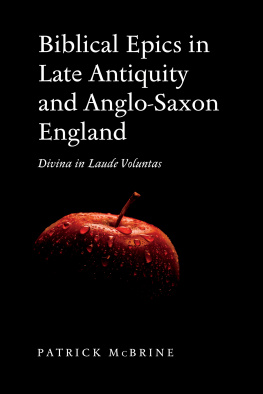

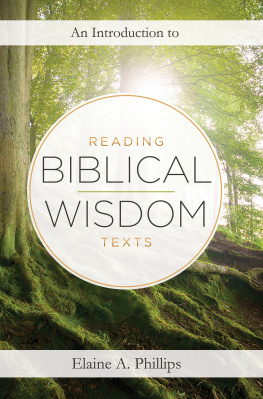
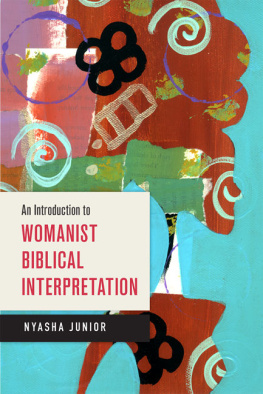
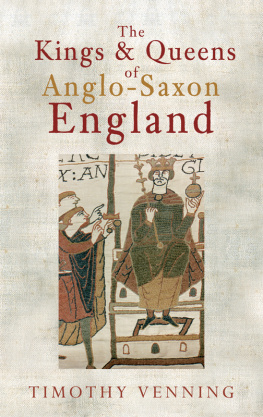
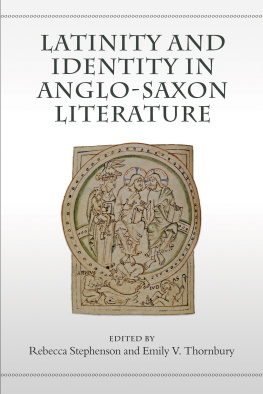
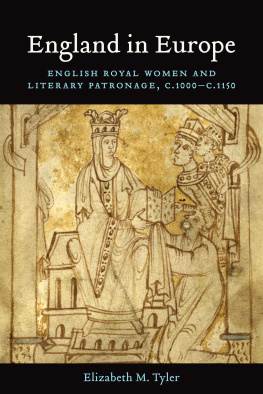
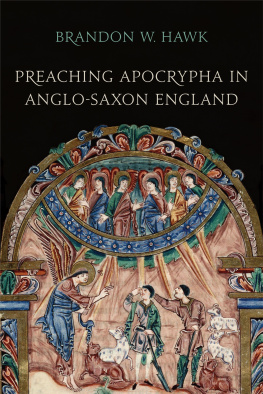
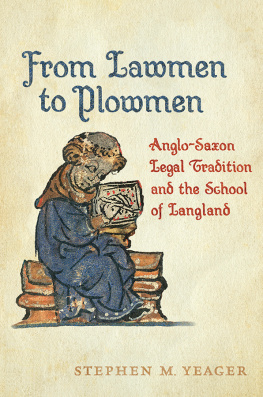
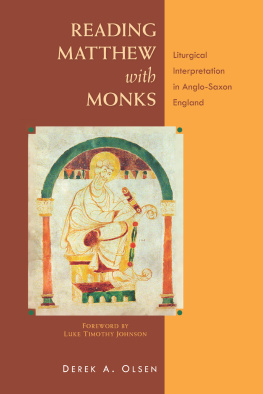
 Printed on acid-free, 100% post-consumer recycled paper with vegetable-based inks.
Printed on acid-free, 100% post-consumer recycled paper with vegetable-based inks.